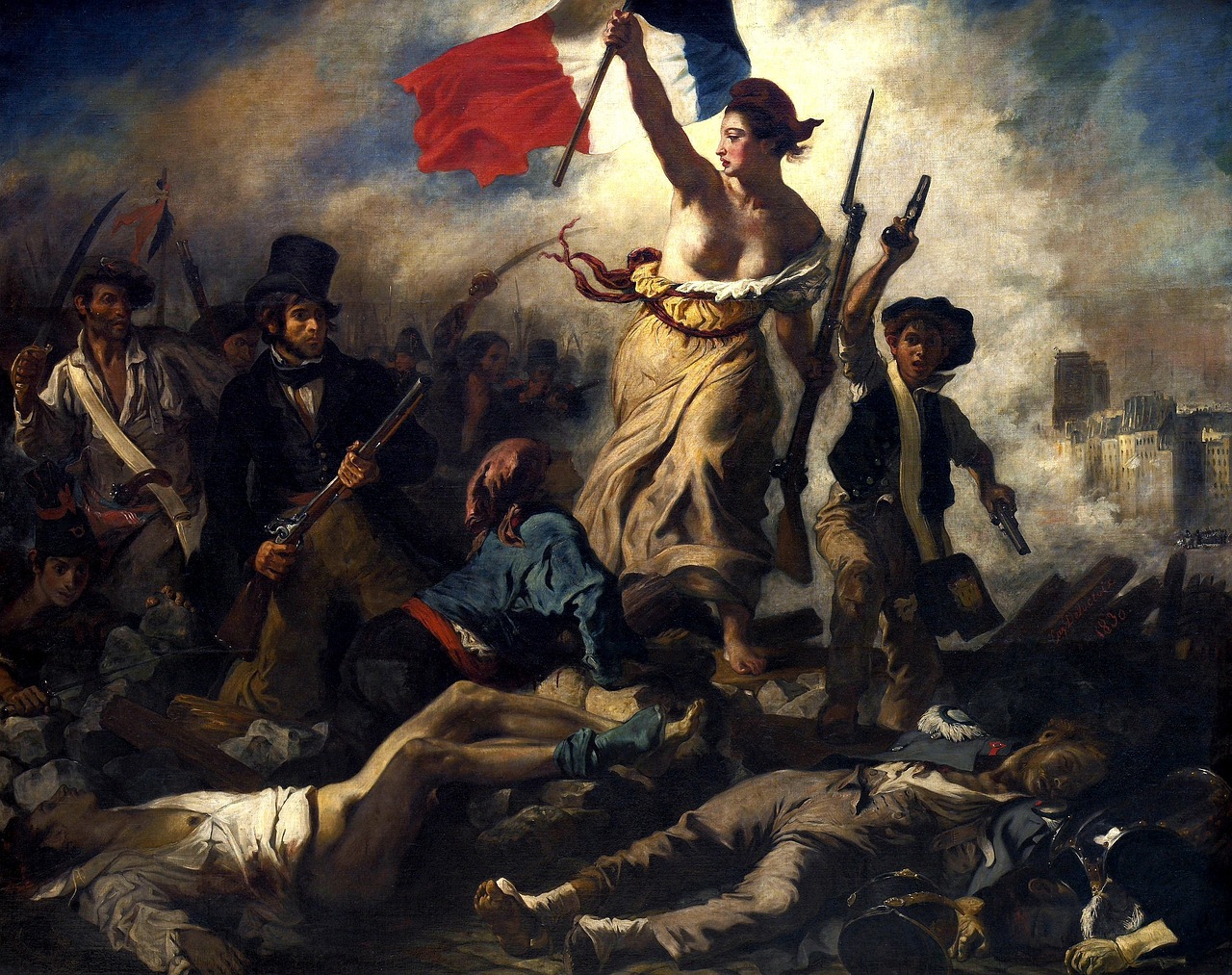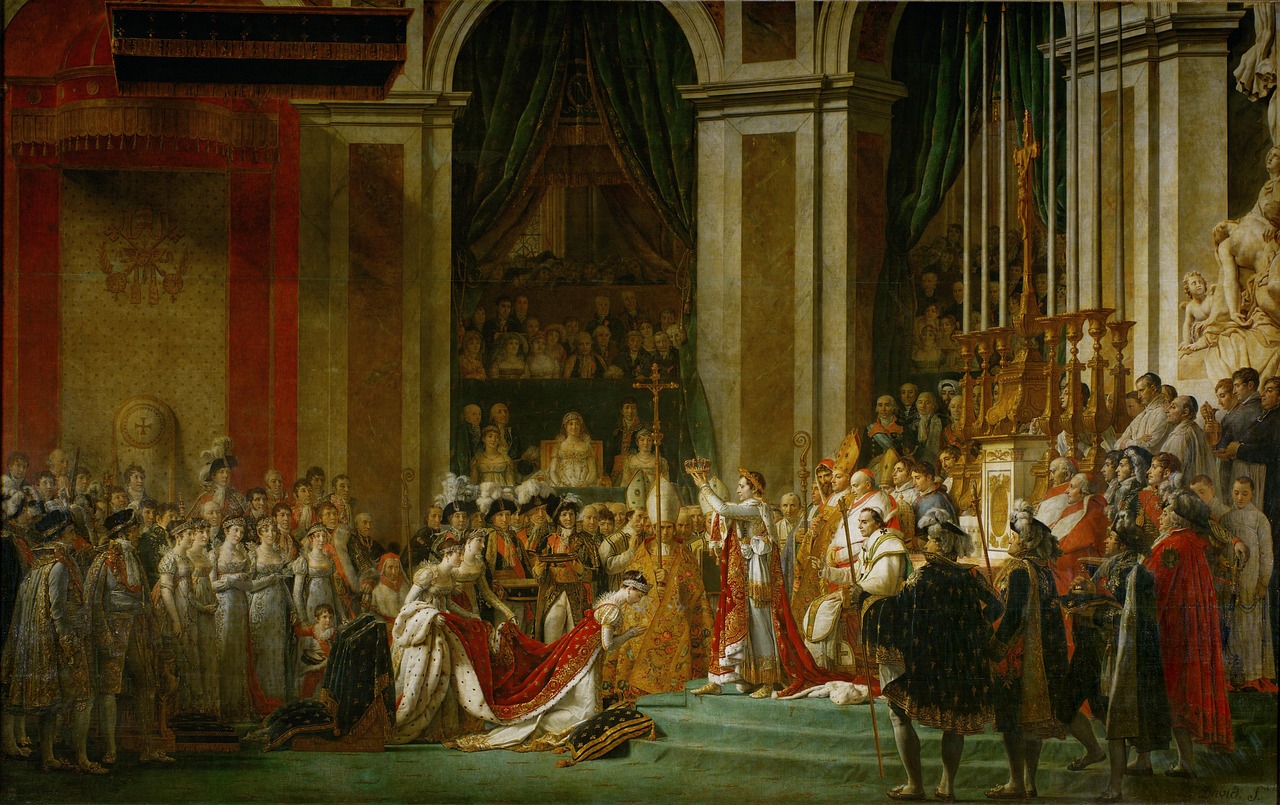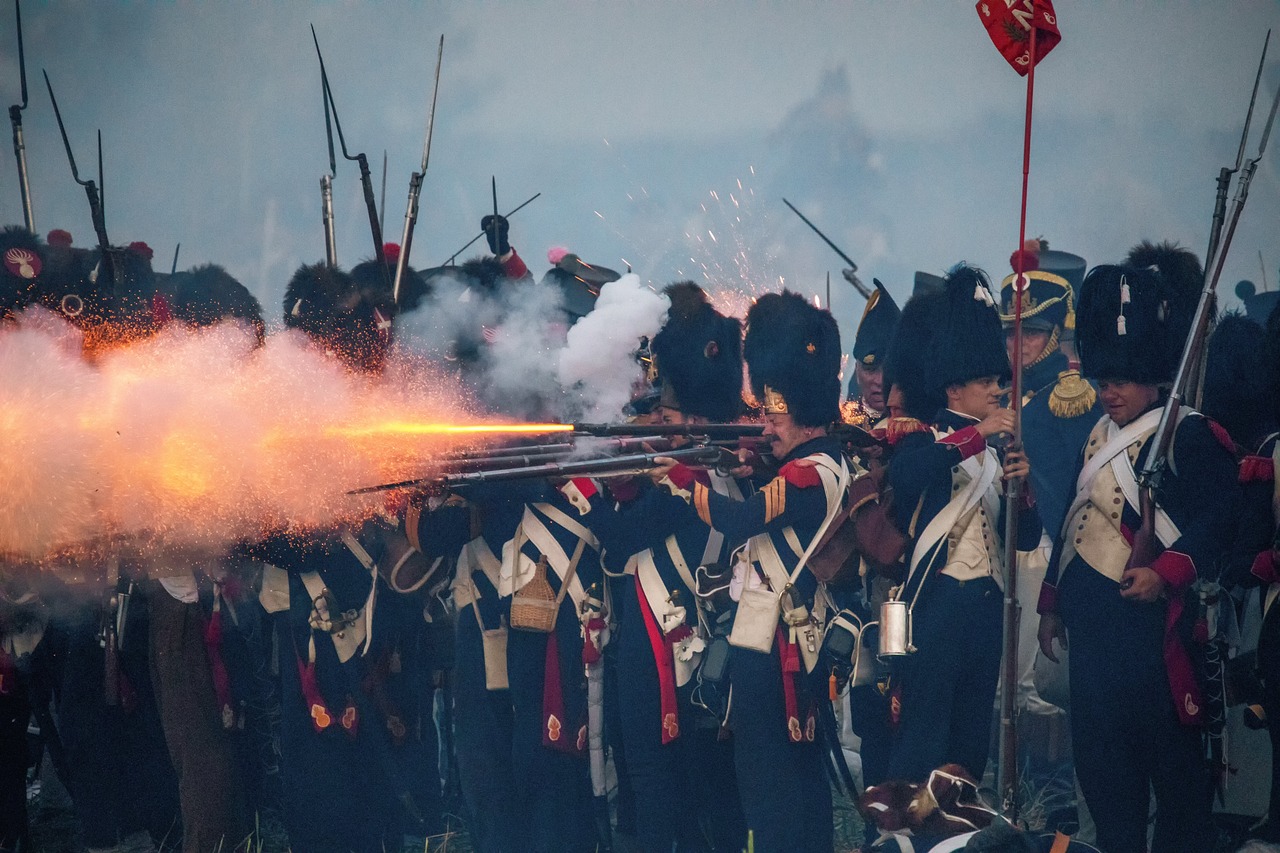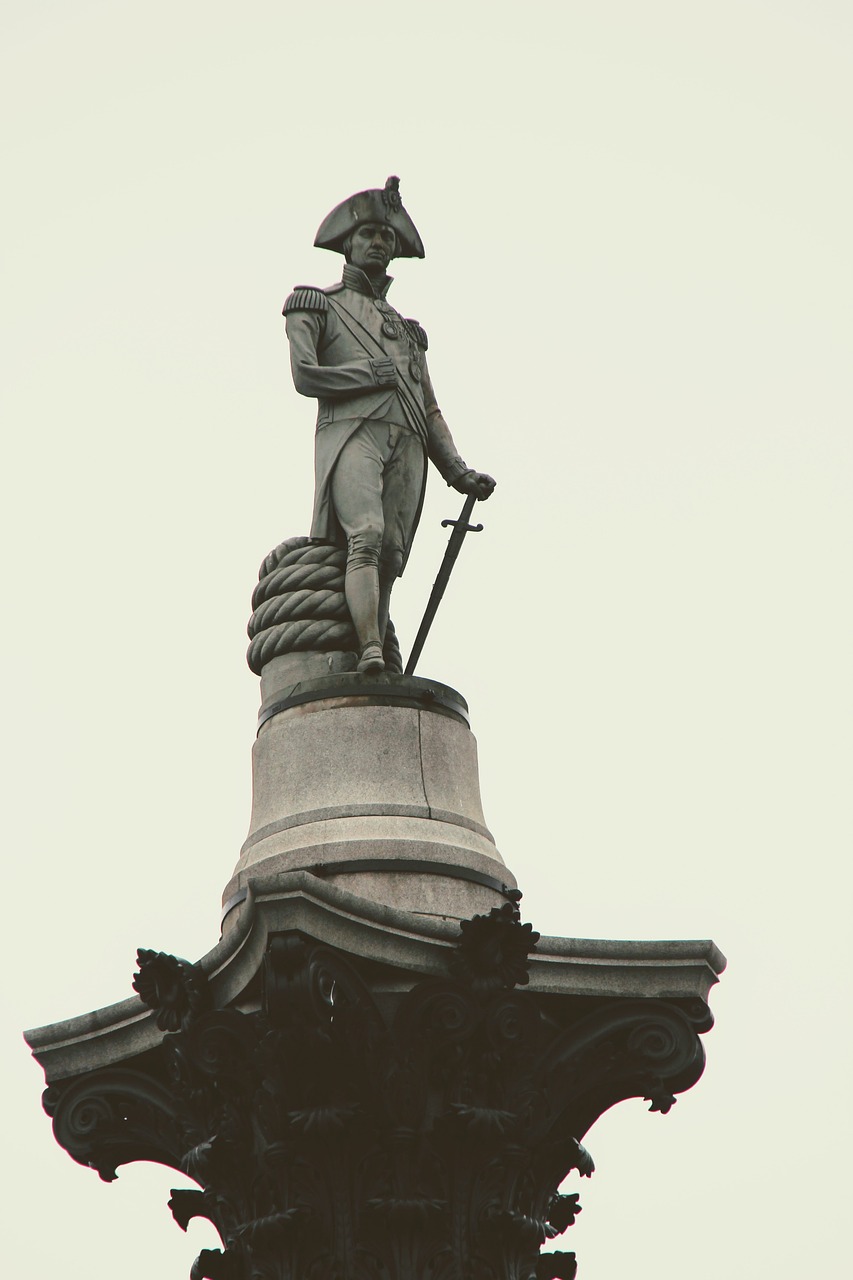Before 1799
Born on August 15, 1769, in Corsica, which had recently become a French territory, Napoleon came from a modest background. His education took place in the mainland of France, where he displayed a keen interest in military strategy and history.
In 1785, at the age of 16, Napoleon entered the French military academy in Paris for a year before graduating, ranking 42nd of 58 students in his class. Upon graduation in 1785, Napoleon joined the French Army as a second lieutenant of artillery, stationed in a regiment in La Fère—an educational stationing for young artillery officers. Fast forward a couple of years in time, the French Revolution was around the corner. The young Napoleon read works from authors like Voltaire and Rousseau; he found the ideas intresting, however, he did not feel the necessity for radical change.
He quickly rose through the ranks, probably thanks to his strategic abilities and the political chaos of the French Revolution. The turning point in Napoleon's early military career came during the Italian Campaign (1796-1797). Leading the French army, he achieved a series of victories against the Austrians and their allies, earning him the nickname "The Little Corporal." His strategic brilliance and political acumen allowed him to negotiate favorable treaties and enhance his reputation both on the battlefield and in the political sphere.
By 1799, Napoleon had become a celebrated military general and a key figure in French politics. His success in Italy and, combined with political maneuvering in France, set the stage for the Coup of 18 Brumaire, where he seized power and established the Consulate, marking the beginning of his road to becoming the future emperor. And marking the beginning of the Napoleonic era and its wars.

1799
In 1799, Napoleon Bonaparte orchestrated the Coup of 18 Brumaire, a political maneuver that reshaped the course of French history. With this move, Napoleon seized control, bringing an end to the tumultuous era of the French Revolution. The establishment of the Consulate marked a pivotal moment, steering the nation away from the radical ideologies of the revolutionaries. This period marked the beginning of a transformative phase in which Napoleon implemented crucial domestic reforms, such as the creation of the Napoleonic Code and the Bank of France.
Simultaneously, on the international stage, Napoleon embarked on a series of military campaigns that would define the Napoleonic Wars.
1800
In June of 1800, the Battle of Marengo unfolded as a pivotal moment in Napoleon's military career. Fought in Italy between Napoleon's forces and the Austrians, the engagement initially posed challenges for the French.
Facing initial setbacks, Napoleon maneuvered his troops, orchestrating a remarkable turnaround that ultimately secured a victory at Marengo. The Battle of Marengo showcased his ability to outmaneuver and outthink his opponents, earning him a reputation as a formidable military strategist.
This victory solidified Napoleon's grip on power, further strengthening his position as the First Consul of France. The French people, buoyed by the success at Marengo, rallied around Napoleon, viewing him as a symbol of national strength
Abroad, Europe's reactions varied during. Austria sought diplomatic solutions after the Battle of Marengo. Britain, a longstanding enemy, maintained naval dominance, contributing to a protracted conflict. Russia initially engaged diplomatically but later became a key player in anti-Napoleonic coalitions, especially after the invasion of 1812, but more on that later. Initially Prussia aligned with France, but later reevaluating policies after significant defeats the years that followed.
1802
The long-lasting conflicts between France and Britain ended with the signing of the Treaty of Amiens in May 1802, which represented a temporary halt in hostilities. The treaty brought about a brief interlude of peace, concluding the previous years of war. However, tensions were underneath the surface between the two countries.
The agreement aimed to bring stability to the war-weary nations and restore diplomatic relations. However, the peace was weak, and both sides remained skeptical of each other's intentions. The underlying issues, including trade disputes, colonial rivalries, and conflicting strategic interests, were not adequately resolved. By 1803, tensions had escalated once again, leading to the breakdown of the Treaty of Amiens.

1803
In 1803, the resumption of hostilities between Britain and France marked the end of the Treaty of Amiens. The conflict was characterized by intense naval engagements, with Britain asserting dominance over the seas, disrupting trade routes, and engaging in colonial struggles across the globe. Ideological differences and distrust fueled the war, when Britain declared against France, concerned about Napoleon's ambitions.
1804
Napoleon crowned himself emperor of France in 1804. The coronation, which took place at Notre Dame Cathedral in Paris, saw Napoleon place the crown on his head, rather than receiving it from the hands of the Pope, signalling a deliberate break from traditional monarchical legitimacy. It represented a strategic move to establish a stable and centralized regime, drawing inspiration from historical precedents while also reflecting Napoleon's vision for a powerful and unified France.
He introduced the Code Napoléon, a comprehensive legal code, that drew inspiration from Roman law and enlightenment principles, the code aimed to provide a clear, accessible, and consistent set of laws for all people in France.

1805
The Battle of Austerlitz, fought on December 2, 1805, stands as one of Napoleon Bonaparte's most remarkable military triumphs during the War of the Third Coalition. Facing the Allied forces led by Tsar Alexander I of Russia and Holy Roman Emperor Francis II. The battle earned the nickname "The Battle of the Emperors" due to the participation of Napoleon, Alexander I, and Francis II.
Napoleon led the Allies into underestimating the strength of the French army. The pivotal moment came with the French executing a masterful flanking manoeuvre, encircling and outmanoeuvring the Allies. This manoeuvre, known as the "double envelopment" or the "manoeuvre of the central position," shattered the Allied lines and secured victory for the French.
The Allies suffered substantial losses in casualties and prisoners, while the French demonstrated their prowess on the battlefield. The truce following the battle led to the Treaty of Pressburg in December 1805, which significantly favoured French interests.

1807
The Treaty of Tilsit, inked in June 1807, marked a pivotal moment in European diplomacy, solidifying an unexpected alliance between France and Russia. The alliance brought about a crucial balance of power that favoured France, isolating its perennial rival, Britain. Economically, the treaty facilitated trade agreements and eased restrictions, while territorial adjustments reflected a compromise in influence.
While the alliance initially appeared strong, inherent tensions and conflicting long-term interests sowed the seeds for future disputes.
1808
The Peninsular War started in 1808 when Napoleon's forces invaded the Iberian Peninsula. The Spanish and Portuguese resisted by using guerrilla tactics and utilizing the challenging terrain. This unconventional warfare strained French resources and diverted Napoleon's attention. Despite early successes, the prolonged conflict, marked by battles and British intervention led by the Duke of Wellington, gradually turned the luck against the French. The Peninsular War played a pivotal role in diminishing French influence in Europe.
1809
The Battle of Wagram in July 1809 was a battle between Austria and France. The Battle of Wagram was one of the largest engagements of the Napoleonic Wars, characterized by strategic manoeuvring, intense fighting, and decisive tactics.
As the reader might assume, Napoleon won the war and the victory at Wagram came with significant consequences for the losing Austria - shaping the political landscape in his favour once again. Following the victory, the Treaty of Schönbrunn was signed in October 1809.
1812
Napoleon's ill-fated Russian campaign in 1812 can be seen as the turning point for the French emperor. Napoleon assembled a massive army, the Grande Armée, and invaded Russia in June 1812. The campaign began with initial successes as the French forces won several engagements, including the Battle of Borodino in September 1812. However, the victory came at a high cost, and the toll on the Grande Armée was substantial. As Napoleon entered Moscow in September, he found the city deserted and set on fire by the retreating Russians. The occupation of Moscow did not lead to a decisive victory, and with the onset of the harsh Russian winter, coupled with dwindling supplies and the relentless harassment by Russian forces, the situation for the Grande Armée became miserable. With the harsh Russian winter approaching, Napoleon decided to retreat in October 1812.
The severe winter conditions, lack of provisions, and constant attacks from Russian forces led to catastrophic losses for the army. By the time the remnants of the army crossed the Berezina River in late November, it had been reduced to a mere fraction of its initial strength. The Russian campaign proved disastrous for Napoleon, as it resulted in the near-total collapse of the Grande Armée. The defeat damaged Napoleon's military reputation and marked a turning point in the Napoleonic Wars.
1813
The Battle of Leipzig, recognized as the Battle of Nations, waged in March 1813. The Battle of Leipzig involved an alliance of Russian, Prussian, Austrian, and Swedish forces confronting Napoleon's Grande Armée. The conflict unfolded over several days, with intense fighting across diverse terrain.
The outcome of Leipzig dealt a severe blow to Napoleon's military might. The coalition's victory shattered the aura of invincibility surrounding the French emperor. The defeat compelled Napoleon to retreat, and the Allies saw the opportunity to invade France. As the Allies pressed into French territory, the pressure on Napoleon's regime escalated.
1814
In April 1814, confronted by external opposition and internal challenges, Napoleon Bonaparte made the momentous decision to abdicate the throne. This move led to the restoration of the Bourbon monarchy in France, effectively concluding the era of Napoleonic dominance, at least for the moment being. The abdication set the stage for the Bourbon Restoration, with Louis XVIII ascending to the throne.
Following his abdication, Napoleon experienced exile on the island of Elba, signaling the end of his rule over France. While the Napoleonic era came to a temporary halt, subsequent events unfolded that would bring about Napoleon's return during the Hundred Days in 1815.

1815
The Battle of Waterloo, fought on June 18, 1815, near the town of Waterloo in present-day Belgium, marked the culmination of the Hundred Days and the end of Napoleon Bonaparte's rule.
The battle unfolded between the French forces under Napoleon and the coalition armies led by the Duke of Wellington, Arthur Wellesley, and the Prussian forces commanded by Gebhard Leberecht von Blücher. The fighting was intense, with both sides sustaining heavy casualties. Napoleon sought to break Wellington's lines and secure a decisive victory, but the steadfastness of the Anglo-Allied forces, coupled with the timely arrival of Prussian reinforcements, shifted the wheel of fortune. The turning point came in the afternoon when Blücher's Prussian forces regrouped and attacked the French right flank. The arrival of the Prussians forced Napoleon to divert his attention, creating a vulnerable point in the French lines that Wellington used to his advantage.
The Battle of Waterloo concluded with the French army's retreat, marking a definitive victory for the allies.
After 1815
Following this defeat, Napoleon abdicated for the final time on June 22, 1815. He sought refuge at Rochefort with the hope of escaping to the United States, but the British naval blockade thwarted his plans. Eventually, he surrendered to the British on July 15, 1815. Napoleon's captors faced the challenge of determining his fate. The victorious allies, in the form of the Congress of Vienna, exiled him to the remote island of Saint Helena, situated in the South Atlantic Ocean. Saint Helena was chosen for its isolation, making escape nearly impossible. From 1815 until his death in 1821, Napoleon lived in confinement on the island.
During his exile on Saint Helena, Napoleon faced both physical and emotional hardships. He lived in relative isolation, with British guards overseeing his every move. Despite his circumstances, Napoleon maintained a semblance of his former political and military self, engaging in intellectual pursuits, dictating his memoirs, and corresponding with a circle of loyal followers. His health deteriorated over time, and on May 5, 1821, Napoleon Bonaparte passed away on Saint Helena, marking the end of an era.
The legacy of Napoleon endured long after his death, shaping historical perceptions and influencing the course of European politics and warfare. His military strategies, legal reforms, and administrative innovations left an indelible mark on the continent, and debates about his impact on history persist to this day.
